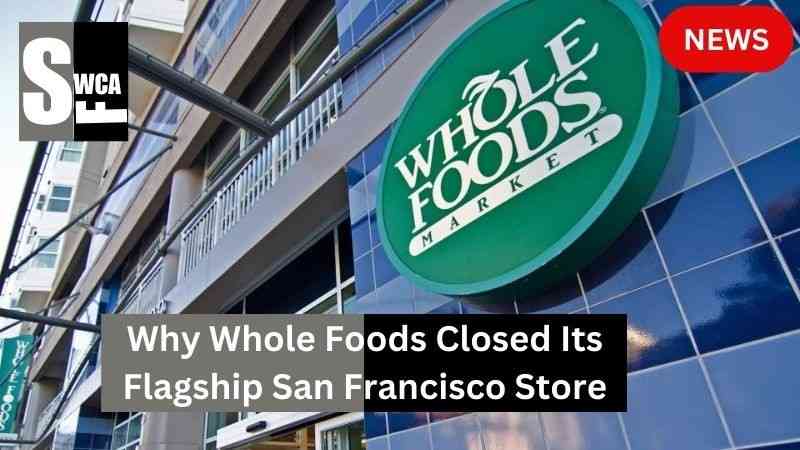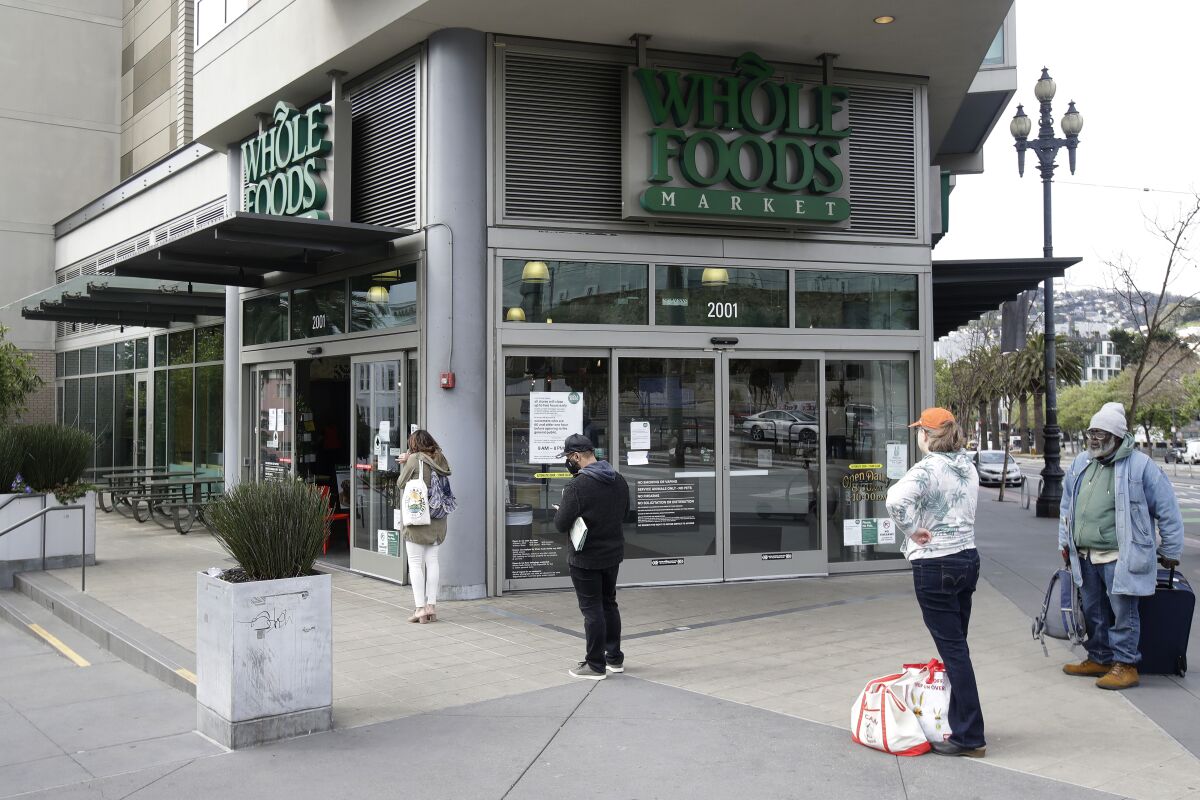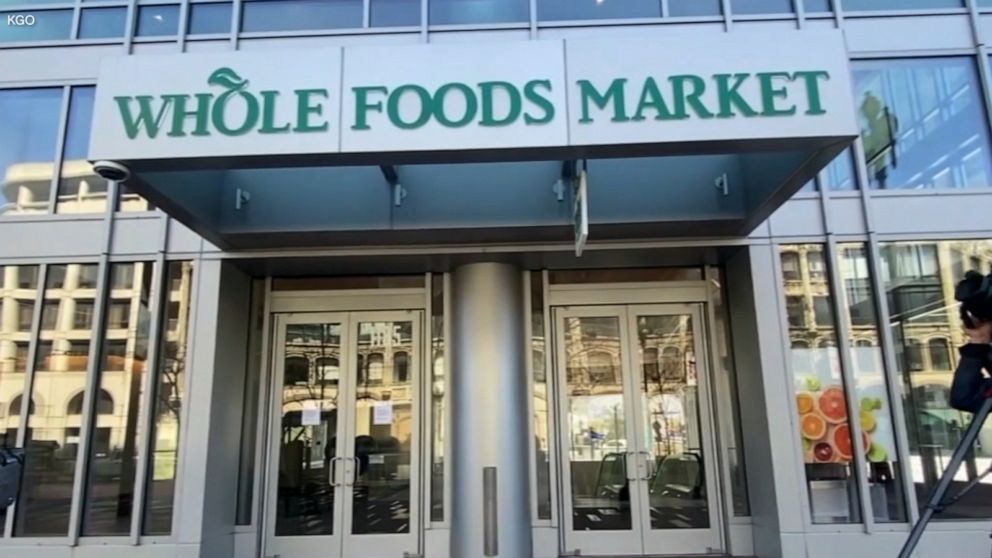
Why Whole Foods Closed Its Flagship San Francisco Store: An Analysis of Employee Safety
In the world of organic and natural foods, Whole Foods has always been a leader. With a wide range of products and a loyal following, the company has been able to establish itself as a dominant player in the market. However, recent events have cast a shadow over Whole Foods’ reputation as a responsible and employee-friendly company. In this article, we will analyze the recent closure of Whole Foods’ flagship store in San Francisco and explore the reasons behind it.
Introduction
In March 2022, Whole Foods announced the closure of its flagship store in San Francisco. The decision came after months of protests and demonstrations by employees who claimed that the company was not doing enough to protect their health and safety. According to reports, several employees had tested positive for COVID-19, and many others were concerned about the lack of safety measures in the workplace. The closure of the store has sparked a national conversation about the responsibilities of employers towards their workers, especially during times of crisis.

The History of Whole Foods in San Francisco
Whole Foods has a long history in San Francisco. The company opened its first store in the city in 2000, and over the years, it has become a fixture in the local community. The store was known for its wide selection of organic produce, natural foods, and gourmet products. It also had a reputation for being an excellent employer, with a strong commitment to employee health and safety. However, this reputation was called into question in the wake of the COVID-19 pandemic.
The Impact of COVID-19 on Whole Foods Employees
The COVID-19 pandemic has had a profound impact on workers across the globe. In the United States, many essential workers, including grocery store employees, have been at the front lines of the pandemic. These workers have had to deal with the risk of infection, long hours, and stressful working conditions. For Whole Foods employees in San Francisco, the situation was no different. In March 2022, several employees at the flagship store tested positive for COVID-19. The news sparked outrage among employees, who felt that the company was not doing enough to protect them.
The Response of Whole Foods to Employee Concerns
Following the outbreak of COVID-19 at the flagship store, Whole Foods faced mounting pressure from employees and the community to take action. The company responded by implementing a series of safety measures, including requiring masks for employees and customers, installing plexiglass barriers at checkout counters, and increasing the frequency of cleaning and sanitizing. However, many employees felt that these measures were not enough. They continued to demand better protection and increased hazard pay.
Read Also
Delta Air Lines Reports Q1 2023 Earnings
Silver Airways’ Lease Woes: Uncertain Future at FLL
Shots Fired Near Apartment Complex in Kendallville
Heavy Rain Possible for South Florida Today
US Small Business Confidence Dips as Future Expectations Dim
Call for Competition & Transparency in Aviation Ground Handling
Amazon to Slash Employee Stock Awards Amidst Cost-Cutting Measures
Read Why? Walmart Sues Credit Card Partner Capital One
Hamming it up: How to Safely Store and Enjoy Leftover Ham
Cool Discovery: Dire Wolves Once Roamed Canada During the Ice Age
SpaceX’s Starship Vehicle Stacked for Launch at Starbase Facility in South Texas
Argentina’s High Inflation Challenges Sergio Massa’s Government
Attorney General Nessel gets the MPSC to settle UPPCO’s request to raise rates.
Why this great manufacturer must follow Tesla and Volvo
Better Luxury EV: Tesla or Lucid?
Genius Group Approved to Dual List on Upstream
AUM At Gresham House Rose By 20 Per Cent In 2022
NCR registers a decline in sale of flats
How Blockchain gaming increasing into Metaverse
Air Turbulence On The Rise Due To Climate Change
Walmart lays off masses of employees to ‘put together for the future’
Accenture to axe 19,000 jobs
Accenture is firing 19,000 personnel to cut value, says will resume hiring in past due 2023 after layoffs complete
IT Services Firm Accenture To Cut 19,000 Jobs
DirecTV and Newsmax quit ugly dispute because the satellite carrier moves deal to resume broadcasting the right-wing channel

The Closure of the Flagship Store
Despite the safety measures implemented by Whole Foods, the protests and demonstrations by employees continued. In March 2022, the company announced that it would be closing the flagship store in San Francisco. The decision was met with mixed reactions. Some employees and community members welcomed the move, seeing it as a victory for workers’ rights. Others were disappointed, as the store had been an important part of the local community for over 20 years.
The Future of Whole Foods in San Francisco
The closure of the flagship store in San Francisco has raised questions about the future of Whole Foods in the city. Some speculate that the company may be scaling back its operations in the area, while others believe that Whole Foods will continue to invest in San Francisco. The company has not yet made any official announcements regarding its plans for the city.
Conclusion
The closure of Whole Foods‘ flagship store in San Francisco has highlighted the importance of worker safety and the responsibilities of employers towards their employees. While the COVID-19 pandemic has presented unprecedented challenges for businesses, it has also brought to light the inequalities and vulnerabilities of workers in many industries. Whole Foods’ decision to close its San Francisco store underscores the need for companies to prioritize employee safety and well-being, even in difficult times. As the world continues to grapple with the ongoing pandemic, it is essential for employers to take proactive steps to protect their workers and ensure that they are treated fairly and with respect.
FAQs On Why Whole Foods Closed Its Flagship San Francisco Store: An Analysis of Employee Safety
What led to the closure of Whole Foods’ flagship store in San Francisco?
The closure was prompted by concerns over employee safety and well-being, including several cases of COVID-19 among workers at the store.
What safety measures did Whole Foods implement in response to employee concerns?
Whole Foods implemented a variety of safety measures, including requiring masks for employees and customers, installing plexiglass barriers at checkout counters, and increasing the frequency of cleaning and sanitizing.
How did employees and the community respond to the closure of the store?
The response was mixed, with some employees and community members supporting the move and others expressing disappointment.
What is the future of Whole Foods in San Francisco?
The company has not made any official announcements regarding its plans for the city.
What can other companies learn from Whole Foods’ experience?
The closure of Whole Foods’ flagship store underscores the importance of prioritizing employee safety and well-being, even in difficult times. Companies should take proactive steps to protect their workers and ensure that they are treated fairly and with respect.

Author Of Solvefinancewithca.com
Hi, my name is Sandeep Mittal and I have been working as a Chartered Accountant in the finance industry for the last 5 years. With my experience, I have gained knowledge about various aspects of finance, such as financial planning, investment strategies, taxation, and accounting.
I am passionate about finance and I want to help people achieve their financial goals. So, I have started a blog called “Solvefinancewithca”. Through this blog, I will share practical advice on finance-related topics like personal finance management, investment planning, tax planning, and accounting best practices.
My goal is to provide solutions to common finance-related problems that people face in their daily lives. I want to make finance easy to understand for everyone and provide honest and impartial advice that is tailored to the needs of my readers.
In summary, my blog “Solvefinancewithca” is about sharing my passion for finance and helping people make informed decisions about their finances.


